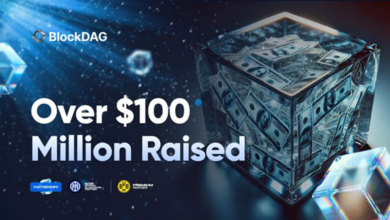
Kraken to Shut Down NFT Marketplace: Impact and Future Prospects
The renowned cryptocurrency exchange company, Kraken, has announced its intention to discontinue its NFT marketplace operations in early 2025. This significant decision is poised to have a profound effect on the NFT ecosystem, given Kraken’s pivotal role in the digital token arena. The unexpected move has left analysts speculating about the implications for the future of NFTs.
Marketplace Closure Slated for February 2025
Kraken has set February 27, 2025, as the date for shutting down its NFT marketplace, marking a farewell to its dedicated user base. Starting November 27, the platform will begin phasing out key services such as bidding, listing, and selling NFTs. Despite these changes, Kraken has assured users that they will have ample time to withdraw their funds before the final closure date.
Strategic Shift Towards New Ventures
A representative from Kraken has confirmed the impending shutdown, highlighting the strategic shift of resources towards developing new products and services. This challenging decision reflects the company’s commitment to exploring innovative avenues, despite the significant role the NFT marketplace has played within the firm. Kraken is dedicated to ensuring a smooth transition for its customers, offering support for transferring assets to alternative wallets, including the Kraken self-custody wallet.
Workforce Adjustments and Leadership Changes
The announcement of the NFT marketplace’s closure follows closely on the heels of recent organizational changes at Kraken. In October, the company reduced its workforce by 15%, letting go of 400 employees as part of a broader restructuring initiative. Concurrently, Kraken appointed Arjun Sethi, a veteran of Silicon Valley, as the new co-CEO, working alongside Dave Ripley to steer the company toward becoming a leading force in the crypto industry.
Challenges Facing the NFT Market
Recent trends indicate a slowing momentum within the NFT market. Crypto analytics platform Artemis reported a 50% decline in NFT market activity in June, mirroring downturns in major cryptocurrencies such as Bitcoin, Ethereum, and Solana. Paul Thomas, CEO of Somnia, noted the waning excitement around digital collectibles and pointed out that the demand for utility in NFTs might be contributing to this deceleration. Additionally, issues such as a perceived lack of originality have been cited as challenges facing the sector.
Despite these hurdles, there remains optimism about the NFT market’s future. Industry forecasts suggest that the market could reach a valuation of $2.8 billion by 2028, with user numbers potentially climbing to 14.67 million by the end of this year.







